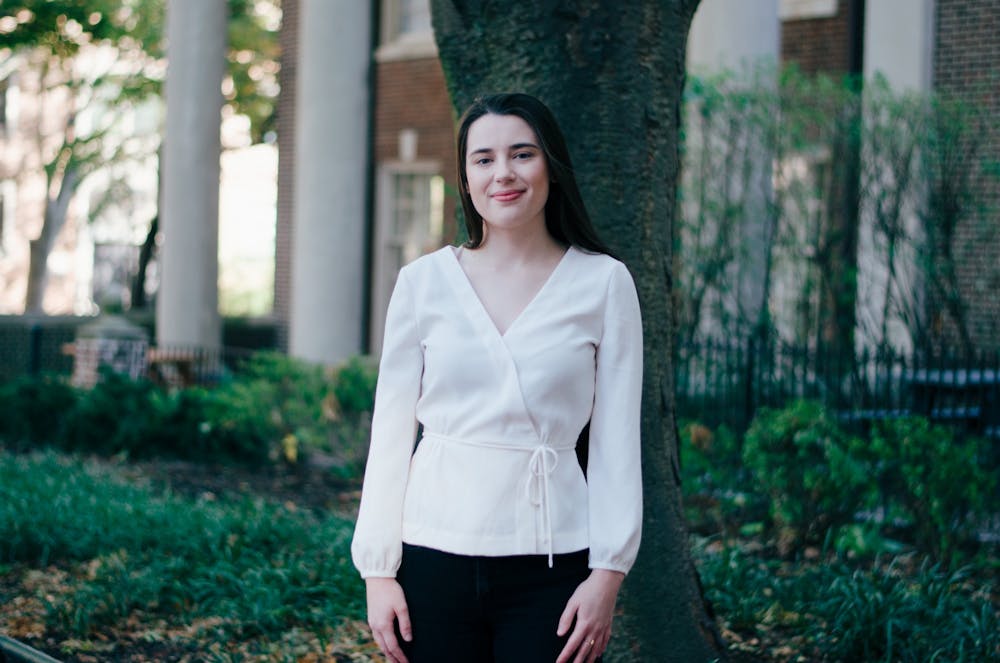In the vast world of desserts, what makes crepes stand out? For Angela Schmitt (C, W ’21), the answer is obvious: “They're delicious. Who doesn't like them? Chocolate, fruit, marshmallow, lemon curd, and as much homemade whipped cream as you could possibly eat. I love dessert and I love coffee, and I wanted to make a food I loved.”
And so she did. Her food truck Crepe Diem, based in the small town of Sheboygan, Wisc., is a local favorite, serving coffee and crepes at various events.
“I bought the truck three years ago, and it was originally a utility truck that we converted into a food truck. Now we travel around to different arts festivals, fairs, farmers markets, and concerts during the summer,” Angela says.
“That’s another reason I chose crepes: it’s more of a niche thing. My town isn’t big enough to have a creperie. But when people are at events, they still want to get something that they wouldn't just get at home or any old restaurant.”
These are not just your everyday crepes. When asked about the menu, Angela had her answers ready. Most popular? Nutella and strawberry. Riskiest? “Kitchen sink ... basically everything that we have dumped into one huge three pound crepe,” Angela says. Her her personal favorite? Lemon curd with strawberry.
She compares her experience of owning a small business with the corporate business settings that her peers at Penn may be more familiar with. “I actually make all the crepes myself. We’re open about six days a week, and we’re pretty much all booked up for the summer,” Angela says.
“That’s what I think is most unique about my food truck experience: it's really an individual one. If I don’t get up in the morning, do all the prep, drive the actual truck, and show up on time, we're not getting to the event.”
Angela says that it’s the “hands–on day–to–day grit” that motivates her to keep going.
“I know that if I make a really killer special this week, it's going to sell amazingly and my customers will be happy, and I’ll be able to see all of that. I think it's the most authentic form of feedback,” she says. “There's such a direct correlation between effort–in and reward—not only monetary but also the success aspect—that I personally find super motivating. It’s a lot of responsibility. And it's something that I took on at an earlier age than a lot of people have.”
Here at Penn, Angela has an extensive list of commitments that keep her busy during the school year as well. On top of her dual degree of statistics in Wharton and math in the College and two research position jobs, she is both a Benjamin Franklin Scholar and a Joseph Wharton Scholar. Aside from cooking, one of her biggest hobbies is traveling, and this is reflected in the leadership positions she holds in Penn International Impact Consulting and Wharton Leadership Ventures. With PIIC, she has led international trips to places such as Cape Town, South Africa, where she worked on prenatal HIV reduction, as well as Peru, where she led projects related to education and community empowerment.
WLV, on the other hand, has both an international and a local focus, and the club focuses on getting students to challenge themselves in team environments. This often involves sailing or backpacking trips nearby, which is something that Angela says has helped stay connected to the things she did back home and keep in touch with the “outdoorsy, adventure seeker” aspects of her personality.
But she says it is still Crepe Diem that's taught her the most about business in the real world and has helped her decide which direction to go towards with her professional career.
“I definitely had an interest in business before I had the truck, but I think that running it has helped me define what specific kind of business I'm passionate about. It’s also taught me a lot about entrepreneurship and building my own ventures,” Angela says. “Without having done the food truck, I don’t know if I would necessarily have the confidence to go out and start my own company somewhere down the line.”
So, what’s next for Angela?
“I'm actually taking a gap semester. I’m pursuing a dual degree, but I have enough credits so that I can graduate on time even if I take a semester off, so why not take the semester off? I'm going to travel and then hopefully work on some of my own long–term projects.”







